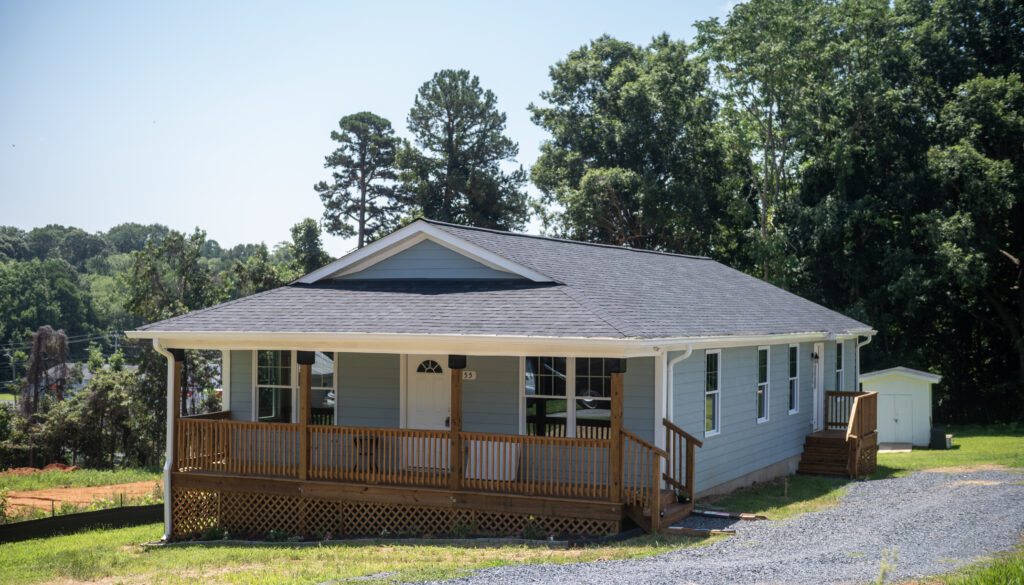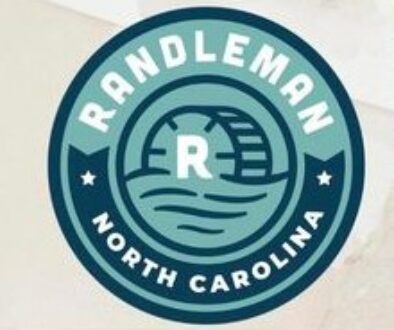Golf Classic marks 27 years, 19 Habitat homes in Randolph County
The 19th home funded by the Habitat Golf Classic stands in Asheboro as the latest milestone in the tournament’s 27-year legacy. (PJ Ward-Brown / Randolph Record)
ASHEBORO — What began in 1999 as a local golf tournament to support Habitat for Humanity has grown into a long-running community tradition — and a powerful driver of affordable housing in Randolph County.
The Habitat Golf Classic, now in its 27th year, has helped fund the construction of 19 homes, including the newest and largest to date: a five-bedroom, three-bath house dedicated this summer. The event’s organizer and longtime sponsor, Sam Ramsey, said the milestone reflects the deep commitment of sponsors, volunteers and community members who’ve supported the cause for nearly three decades.
“This tournament has never been about me,” Ramsey said. “It’s about what the sponsors and community have done together. We’ve helped build 19 homes in 26 years — that’s real impact.”
The 19th home was made possible through the support of numerous sponsors and volunteers, including The North State Journal, which joined the tournament this year as a first-time sponsor.
Ramsey, who has operated a Chick-fil-A franchise in Asheboro since 1988, said the idea for the tournament came during a church conversation in the late 1990s with Pat Cooper and Phil Koontz. At the time, Randolph County didn’t yet have a Habitat for Humanity chapter — but the vision to bring one into being took shape quickly.
“I said, ‘Why not a golf tournament?’ It gets people together and raises money for good,” Ramsey recalled.
The tournament has rotated between Pinewood Country Club and Tot Hill Farm Golf Club in recent years. It typically takes place on the fourth Thursday in September — this year falling on Sept. 25. Sponsorships are available in three tiers: silver at $250, gold at $500 and platinum at $1,000.
The most recent home dedication also coincides with Habitat for Humanity of Randolph County’s 50th total build — a major milestone for the local affiliate. The first house funded by the tournament cost just $41,000 and required three years of events to raise the funds. In contrast, today’s builds are larger, more complex and a clear sign of the program’s momentum.
Families selected to receive Habitat homes must meet eligibility requirements, including demonstrating financial need, completing financial literacy classes, and contributing “sweat equity” by helping build their home. For more on the process, Ramsey recommends contacting Dremia Myers at Habitat for Humanity of Randolph County.
“A small group of people started something back in ’99,” he said. “Because of generous sponsors and faithful volunteers, we’ve now helped 19 families find a home.”
 Twitter
Twitter Facebook
Facebook Instagram
Instagram


